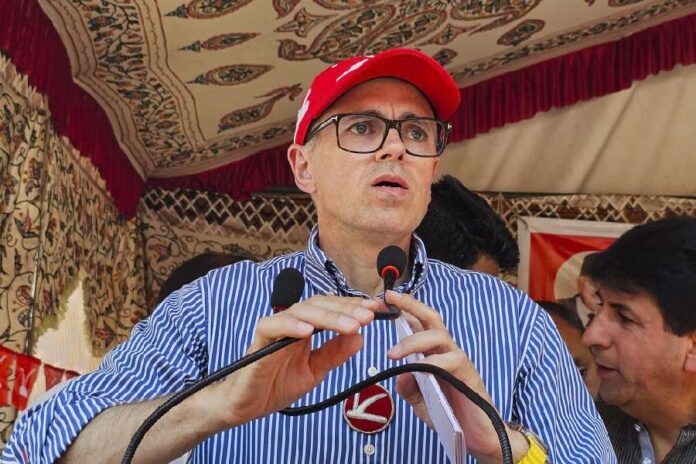New Delhi, Oct 13 – President’s rule in Jammu and Kashmir was officially withdrawn on Sunday, clearing the way for the formation of a new government in the union territory. A gazette notification to this effect was issued by the Union Home Ministry.
The notification, signed by President Droupadi Murmu, stated, “In exercise of the powers conferred by Section 73 of the Jammu and Kashmir Reorganisation Act, 2019, read with Articles 239 and 239A of the Constitution of India, the order dated October 31, 2019, in relation to the union territory of Jammu and Kashmir shall stand revoked immediately before the appointment of the chief minister under Section 54 of the Jammu and Kashmir Reorganisation Act, 2019.”
The revocation follows the recent Jammu and Kashmir Assembly elections, in which the National Conference (NC) and Congress alliance emerged victorious. NC vice president Omar Abdullah has been elected as the alliance leader and will assume office as the new Chief Minister of Jammu and Kashmir.
President’s rule was imposed on October 31, 2019, following the bifurcation of the erstwhile state into two union territories—Jammu and Kashmir, and Ladakh—under the Jammu and Kashmir Reorganisation Act, 2019. This act, passed by Parliament on August 5, 2019, also included the abrogation of Article 370, which had granted special status to the former state.
Prior to the bifurcation, Jammu and Kashmir had been under central rule since June 2017, following the resignation of then Chief Minister Mehbooba Mufti when the BJP withdrew support from the PDP-led government. Central rule was initially imposed as Governor’s rule for six months, followed by President’s rule, which was extended multiple times with parliamentary approval.
When Jammu and Kashmir became a union territory on October 31, 2019, President’s rule in the undivided state was formally withdrawn. However, central rule continued in the union territory through the Lieutenant Governor (LG) under special provisions of the Jammu and Kashmir Reorganisation Act, 2019.
The governance of Jammu and Kashmir, a union territory with a legislature, is governed by Section 73 of the Act. This section empowers the President to impose central rule if the administration cannot be carried out in accordance with the Act or if it is necessary for proper administration.
With the lifting of President’s rule, the stage is now set for the newly elected government to take charge, signaling a new chapter in Jammu and Kashmir’s political landscape.



